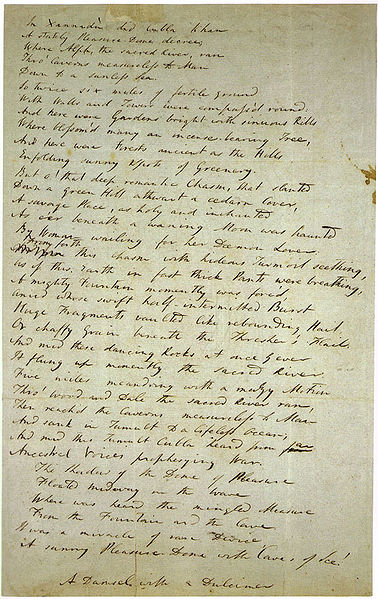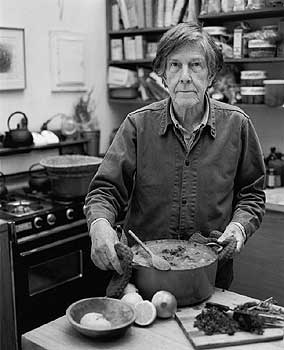 POETRY
POETRY In Which We Are More Self-Involved Than We Imagined
 Monday, June 8, 2009 at 8:39AM
Monday, June 8, 2009 at 8:39AM 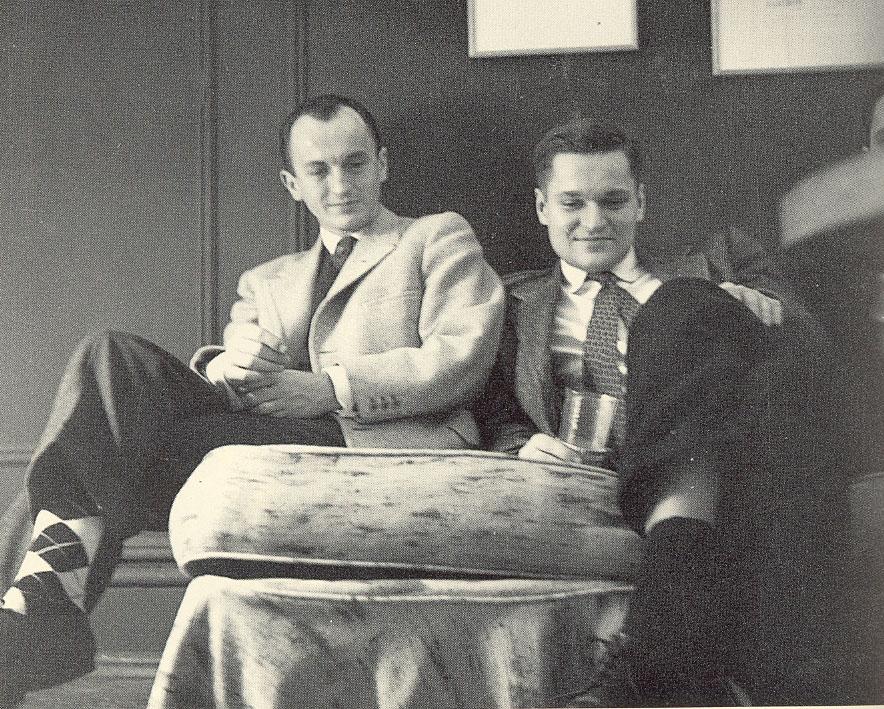
The Window Is Open Today
by WILL HUBBARD
Most reckless things are beautiful in some way and recklessness is what makes experimental art so beautiful, just as religions are beautiful because of the strong possibility that they are founded on nothing...I feel this in the work of great modern painters such as Jackson Pollock or Mark Rothko. Everyone acknowledges them now as being major artists, and yet, does their work amount to anything? There's a possibility that it doesn't, although I believe in it and want it to exist. But I think that part of the strength of their art, in fact, is this doubt as to whether it may be there at all.
- John Ashbery
Since the early 1970s, the career of John Ashbery has been overshadowed by a troubling paradox—he is widely regarded as a poetic 'genius', yet the unnatural syntax and self-referentiality of his long lines make his poems seem 'difficult', 'obscure', or even 'meaningless' in the eyes of professional and amateur readers alike.
Ashbery's reviewers rarely deny the dexterity and intellectual weight of his poems, but they have always had considerable trouble finding tangible evidence to support Ashbery's mysterious appeal. By 1976, with the publication of Self Portrait in a Convex Mirror, Ashbery had been alerted repeatedly to the communicative dilemma that surrounded his verse; in 'The Tomb of Stuart Merrill', he typifies the reader's confusion:
I really would like to know what it is you do to 'magnetize' your poetry, where the curious reader, always a bit puzzled, comes back for a clearer insight.

Ashbery has always insisted that his "intention is to communicate" with his readers; at the same time, he feels that to "communicate something that's already known by the reader is not really communicating anything to him and in fact shows a lack of respect." It follows then that an interview, in which the poet is often asked to paraphrase poems, would anger Ashbery—for him the poem itself is the communicative circuit, and any attempt to bypass this circuit must constitute 'a lack of respect' for the reading public.
Ashbery is not the first poet in history to face the stigma of being widely misunderstood. The Modernist verse of Pound and Eliot confounded critics for many years, and it was not until Pound (and to some extend Eliot as well) had published and spoken extensively about the new aesthetic in verse that the criticism began to favor, and later celebrate their work.
Is revelation possible when reading Ashbery? Does his poetic reputation rely upon the act of speaking unintelligibly about weighty issues? Or intelligibly about nothing at all?
Ashbery quotes, then comments on Borges' essay 'The Wall and the Books':
'Music, states of happiness, mythology, faces molded by time, certain twilights in certain places—all these are trying to tell us something, or have told us something we should not have missed or about to tell us something. The imminence of the revelation that is not yet produced is, perhaps, the aesthetic reality.' The imminence of a revelation not yet produced is very important and hard to define in poetry and probably is the source of some of the difficulty with my own poems. But I don't think it would serve any useful purpose to spare myself or the reader the difficulty of that imminence, of always being on the edge of things.
Ashbery wishes his reader to be aware of (and at the foot of) a new way of understanding the world, though he does not want to identify that way for his reader. Instead, as he suggests in the passage in the paragraph above, his method is to call attention to things that have no intrinsic importance so that his reader may move beyond them at his own discretion to whatever revelation awaits, to the great 'something else'.
Take two poems that deal with a common subject: Larkin's 'Aubade' and Ashbery's 'Fear of Death'. The clearest contrast between the two is the way each poet creates a voice, or authorial persona to preside over the narration of the dismal verses. Larkin draws the reader's attention to the occasion of the poem immediately and explicitly:
I work all day, and get half drunk at night.
Waking at four to soundless dark, I stare.
In time the curtain-edges will grow light.
Till then I see what's really always there:
Unresting death, a whole day nearer now,
Making all thought impossible but how
And where and when I shall myself die.
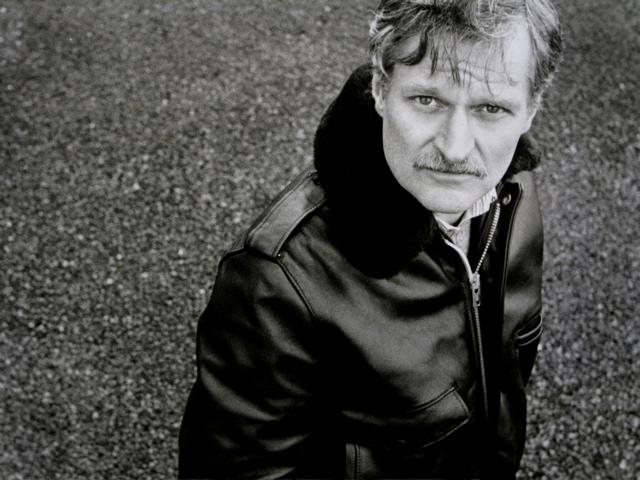
The poem is an aubade, a love ballade to be sung at dawn, and the speaker faces the bitter irony that he must instead spend the early hours of the morning meditating on death. Yet we do not only know the gravity of the speaker's emotional state, we also know something of his daily routine from the first line, something of his living quarters from the third line, and something of his mental processes from the last two.
Even in the opening stanza of the poem, we get the beginning of the speaker's personality—his routines, his disposition, his concerns—and we also get a focused plan for the rest of the poem: "all thought impossible but how/ And where and when I shall myself die." In every sense, Larkin has succeeded in attracting the attention of the reader both to his poem's persona and thematic content, and also to that persona's very poignant attention to the content.
Ashbery's poem is less locating. And yet, 'Fear of Death' begins with a fairly straightforward presentation of the speakers primary concerns:
What is it now with me
And is it as I have become?
Is there no state free from the boundary lines
Of before and after?
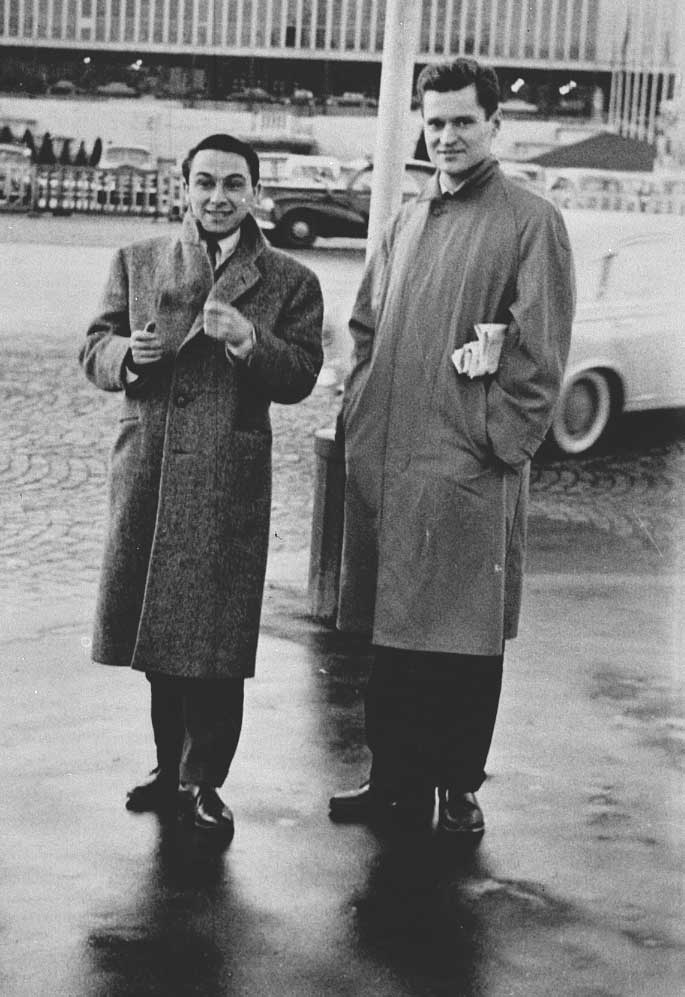
But then, as if the speaker does not wish to concentrate on such grave questions, the direction, mood, and content of the poem changes mid-line:
The window is open today
And the air pours in with piano notes
In the skirts, as though to say, "Look, John,
I've brought these and these"—that is,
A few Beethovens, some Brahmses,
A few choice Poulenc notes....
The poetic persona, (safely Ashbery in this case), has been distracted from his original thoughts by music wafting in through an open window. This distraction serves to ground the occasion of the poem in actual time, in an actual moment when the poet is sitting in his kitchen perhaps, trying to compose a poem about death. The questions that begin the poem thus become enigmatic, they are the opening thoughts of Ashbery before he got distracted—they are the beginning of a poem that could have been.
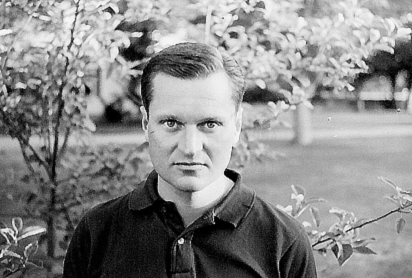
The amorphous narrative voice of Ashbery is at once Deist observer, Christian creator, and existential actor, and his transitions between the three are so abrupt, the juxtapositions so sharp, that at any one point in a poem we are hard put to identify the philosophical perspective to which we are listening. The effect, again, is a scattering of the reader's attention, or a process of distraction in which Ashbery foregrounds the occasion of the poem's composition in order to draw attention away from the chaotic, unpredictable maneuvering of the non-objective voice.
Nowhere is Ashbery's 'rhetoric of distraction' more visible than in the long poem that concludes and lends its title to Ashbery's seventh collection, Self Portrait in a Convex Mirror. We realize even in the opening lines of 'Self Portrait' that the speaker is not going to be a facile subject:
As Parmigianino did it, the right hand
Bigger than the head, thrust at the viewer
And swerving easily away, as though to protect
What it advertises.

the double dream of spring, a de chirico painting john named a book of poetry after
Reading further, we get the feeling that Ashbery is alternatively allowing us to follow his thoughts and discouraging us from doing so. One of the salient features of 'Self Portrait' is its several passages in which a series of logical reversals leaves the reader puzzled:
Love once
Tipped the scales but now is shadowed, invisible,
Though mysteriously present, around somewhere.
But we know it cannot be sandwiched
Between two adjacent moments, that its windings
Lead nowhere except to further tributaries
And that these empty themselves into a vague
Sense of something that can never be known
Even though it seems likely that each of us
Knows what it is and is capable of
Communicating it to the other.
Ashbery has scattered our attention in such a way as to distract, or dissuade us from thinking that some spiritual revelation has or can possibly occur in the poem. There is a certain feeling of containment latent in this idea of 'always being on the edge of things', of constantly being attracted to and then distracted from the object which promises enlightenment or pleasure. We recognize that it is not only the reader who struggles with this feeling of containment—the narrator too, and presumably Ashbery himself, notices a mysterious claustrophobia in the convex mirror:
The surface
Of the mirror being convex, the distance increases
Significantly; that is, enough to make the point
That the soul is captive, treated humanely, kept
In suspension, unable to advance much farther
Than your look as it intercepts the picture.
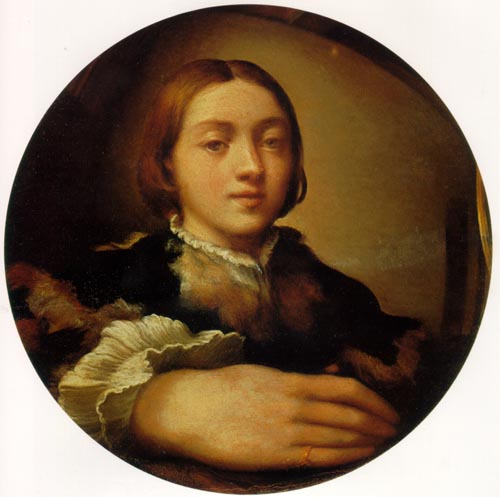
Poetic self-portraits and manifestoes, though written with the express goal of giving insight into the poet's thoughts, concerns, and methods, often have the opposite effect of mystifying the poet and his poems further. Often we may come to an artist's manifesto before we come to his actual art, and thus the manifesto becomes the art itself, the 'work' only an attempt to make good on a promise.
As 'Self Portrait' comes to a close and Ashbery has exhausted his own thoughts about Parmigianino's (and his own) self-representation, he is left with a final question:
Is there anything
To be serious about beyond this otherness
That gets included in the most ordinary
Forms of daily activity, changing everything
Slightly and profoundly, and tearing the matter
Of creation, any creation, not just artistic creation
Out of our hands, to install it on some monstrous, near
Peak, to close to ignore, to far
For one to intervene?
Here Ashbery comes back to the ‘otherness’ of Parmigianino’s portrait, the transcendent quality that caused “Pope Clement and his court [to be] ‘stupefied’/ By it…and promise a commission/ That never materialized.” These lines are meant ironically, for we can easily align the Pope’s reaction to that of Ashbery's critics—‘stupefied’ implies both awe and utter confusion. For the Catholic Pope Clement, the ‘containing effect’ of the painting has its obvious ideological merits:
The soul has to stay where it is,
Even though restless, hearing raindrops at the pane,
The sighing of autumn leaves thrashed by the wind,
Longing to be free, outside, but it must stay
Posing in this place. It must move
As little as possible. This is what the portrait says.
And perhaps this is the allure for Ashbery’s critics as well, for they recognize the way in which he is attempting to undermine the notion of the objective personality, as it had been done years earlier in the visual arts. Ashbery’s reviews in the 70’s were usually positive, though critics had considerable difficulty expounding on the bases for their support, and would often be forced to revert to discussion of Ashbery’s ‘difficult syntax’ or other more minor concerns. For Ashbery, this critical quandary represents the "promised commission/ That never materialized”—critics were intrigued by the idea that the poetic soul could be as isolated and inaccessible as Ashbery’s, but when it came down to taking a side, most of them clung vehemently to the concept of the poetic self that can be objectively identified.

Ashbery doesn't seem to mind, though. In fact, he seems to share their fear acutely when he says of the image of Parmigianino, and, we suppose, himself:
...there is in that gaze a combination
Of tenderness, amusement and regret, so powerful
In its restraint that one cannot look for long.
The secret is too plain. The pity of it smarts,
Makes hot tears spurt: that the soul is not a soul,
Has no secret, is small, and it fits
Its hollow perfectly: its room, our moment of attention.
Will Hubbard is the executive editor of This Recording.
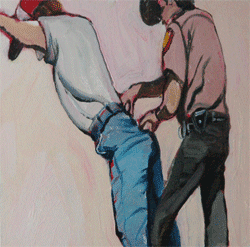
"You Were Right" - Built to Spill (mp3)
"Carry the Zero" - Built to Spill (mp3)
"Sidewalk" - Built to Spill (mp3)

 John Ashbery,
John Ashbery,  will hubbard
will hubbard 
































